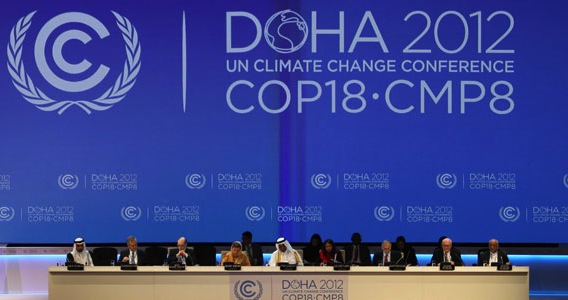 The Kyoto protocol is the one and only legal international documentation, which set binding obligations on 25 industrialized countries, among them Hungary as well, to reduce emissions of greenhouse gases until the end of 2012. During the last climate summit the participating 200 countries extended the Kyoto Protocol for another eight years, i.e. until 2020.
The Kyoto protocol is the one and only legal international documentation, which set binding obligations on 25 industrialized countries, among them Hungary as well, to reduce emissions of greenhouse gases until the end of 2012. During the last climate summit the participating 200 countries extended the Kyoto Protocol for another eight years, i.e. until 2020.
The participants of the last conference gathered in Doha, Qatar. Nonetheless, the negotiations nearly ended in failure because of the disagreement on the amount of subsidies needed to provide to developing countries as well as the rejective approach of developed countries to fulfill their obligation. In the end, the attendees extended the Kyoto Protocol for eight more years; however, a lot of people think this is merely papering over the cracks.

Disappointing outcome
According to environmentalists and many threatened countries the outcome of the conference is highly disappointing. In their view, compromising decisions are not sufficient to slow down global climate change or avoid floods, droughts, heat waves and sea level rise.
Several Climb Down
Japan, Russia and Canada had already been protesting against the obligations of the following round. Therefore, only the European Union and Australia insisted on further increasing the severity of emission restrictions. Most likely this will only have a minor impact on global climate, because EU and Australia are responsible for solely 15 percent of greenhouse gas emissions of the world.
Canada already announced last year that extending the protocol is meaningless, because the two countries emitting most greenhouse gases, namely China and the USA have not signed and are not bound by the protocol.

Two More Degrees and We Are Finished
According to the data of the UN released in November last year, the increasing gas emission reached a historical peak in 2011 again, which may cause growth of temperature between 3 to 5 Celsius degrees. This can lead to floods, droughts, heat and sea level rise. Just recall that two years ago in Cancun the parties agreed that in relation to pre-industrial levels they would try to limit global warming by 2 degrees Celsius.
Numerous researches state that even a small rise in average temperature in the world can have serious aftermaths. If there were a rise of 2 to 4 degrees, polar bear would become extinct, Bangladesh and Egypt would get under water, Africa would be practically scorched land and unfit for living, and small countries with little resources, since they were unsustainable, would have to face catastrophic damage.
Source: www.index.hu
